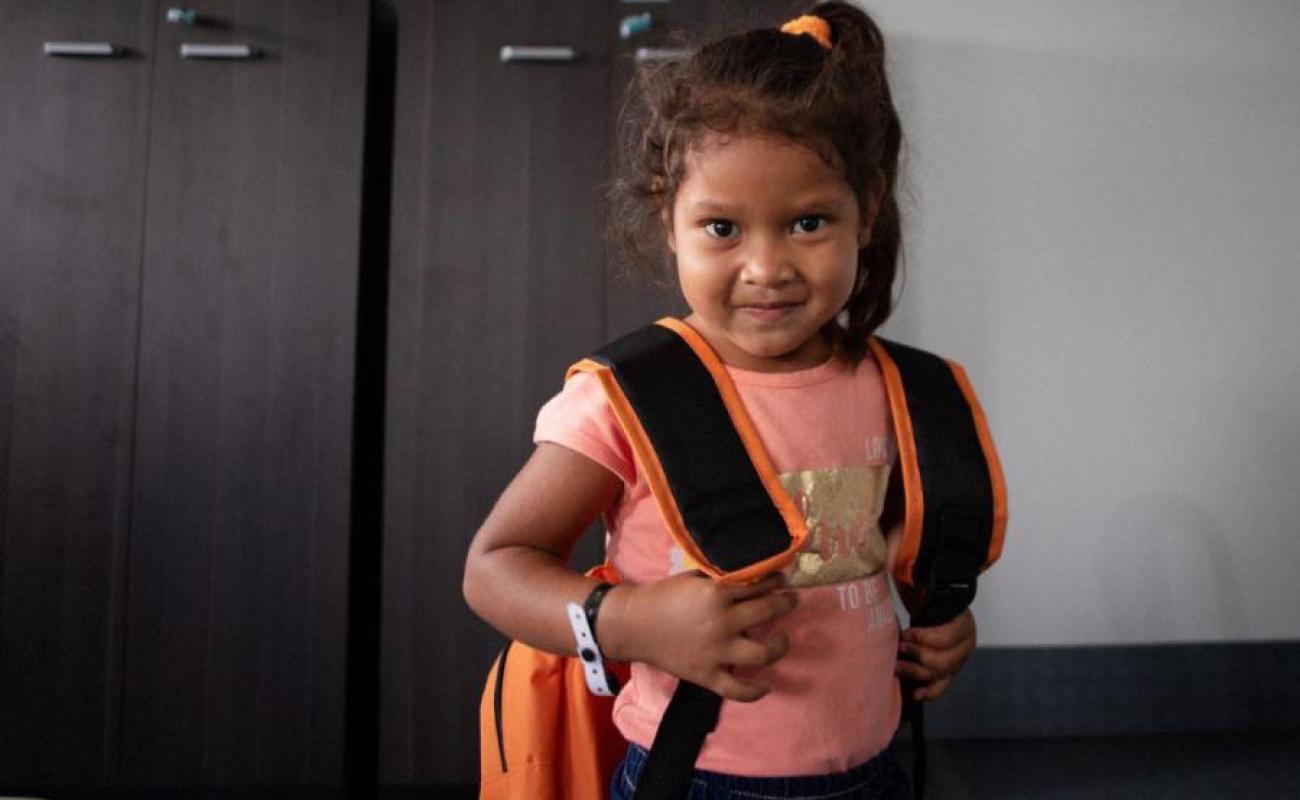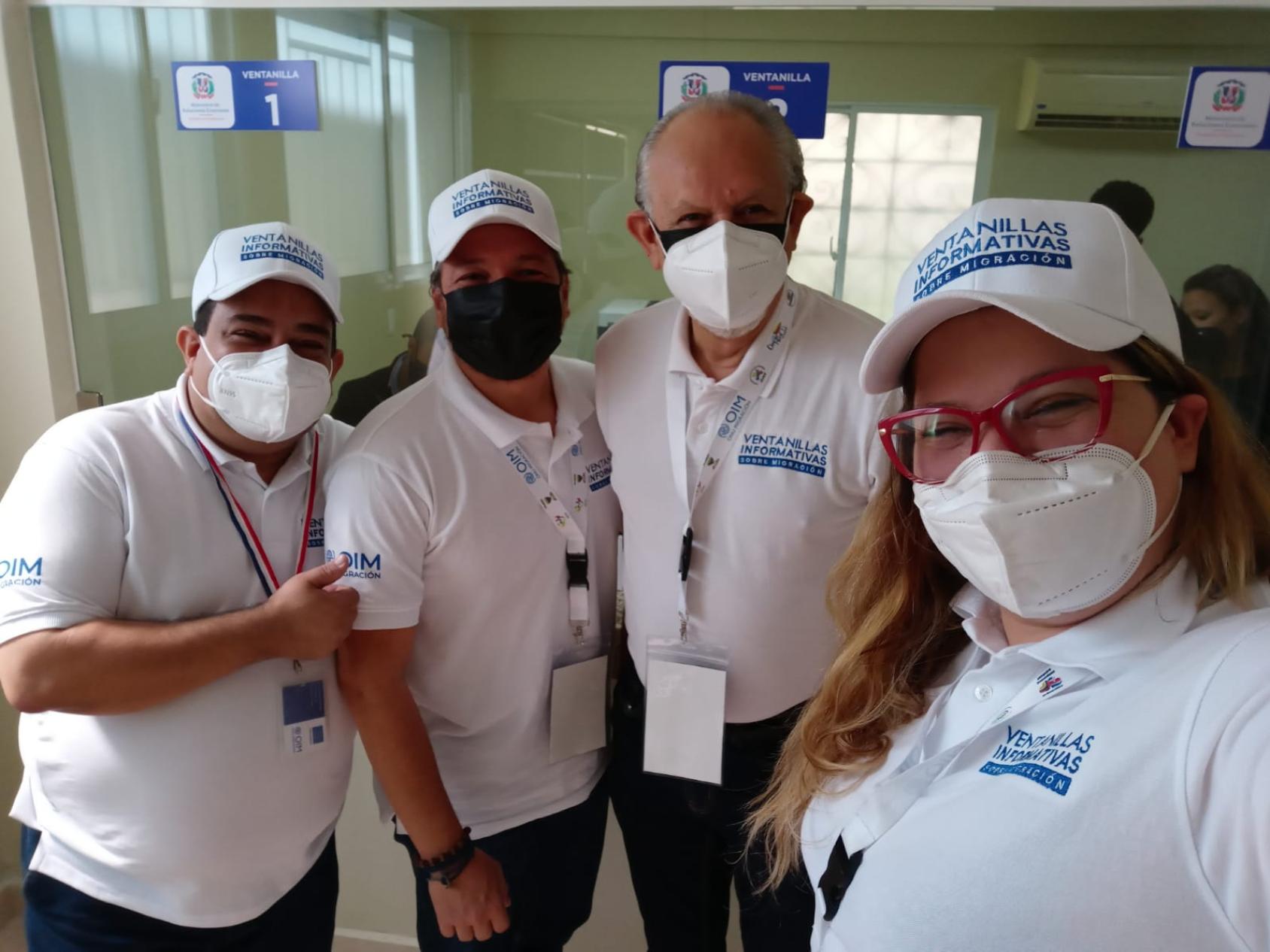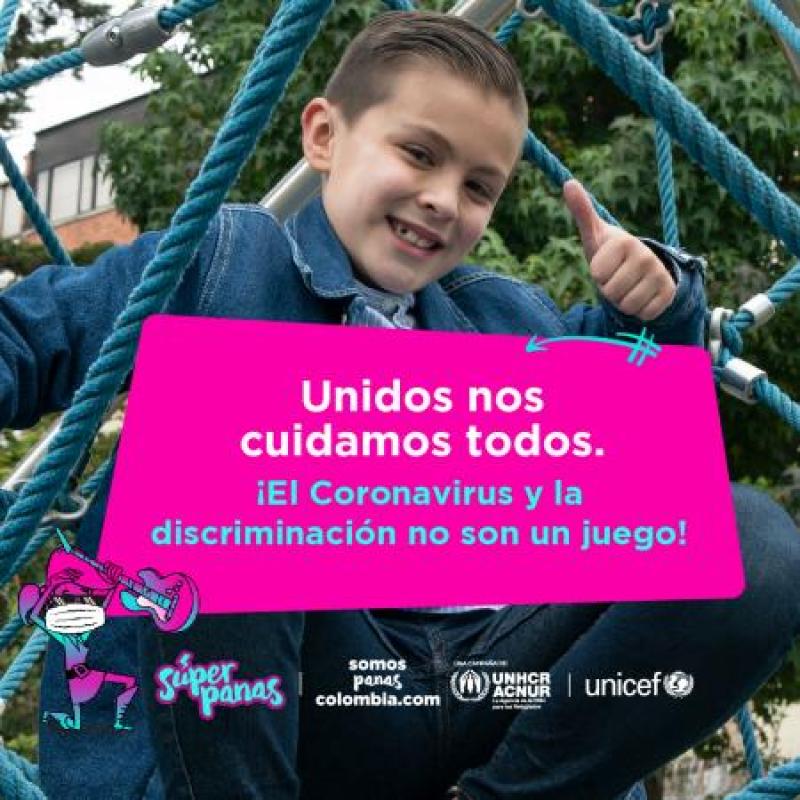Solidarity in action: Venezuelan migrants and their host countries team-up

The decision for any head of family anywhere around the world to leave their home country behind is hard and heartfelt. According to official figures there are nearly 6 million migrants and refugees from Venezuela worldwide. Countries in Latin America and the Caribbean are displaying their solidarity by hosting around 80 per cent of them.
One of them is Yusnegdis, who moved to Brazil in 2018 with her daughter Yosnelsis Antonella, now 4 years old.
In search of better opportunities, Yusnegdis and her daughter took part in the government's “interiorization” strategy, to relocate to other parts of the country, rather than the border states with Venezuela.
“I am outdoing myself to be able to give her the best”, says Yusnegdis. “As she came here very young, she will be able to socialize with her classmates at school in the best way, without any discrimination.”
Yusnegdis benefited from the “Passport to Education” project, developed by the International Organization for Migration (IOM) in partnership with the United Nations Children’s Fund (UNICEF) and authorities, to enable families to receive information about the right to education in Brazil and the process of entering the public education system, while helping them understand the Brazilian culture.
For Mercedes, who is 14 years old, the most difficult part of migrating was adapting to the school, mainly due to the lack of familiarity with Portuguese, as she spoke Spanish in Venezuela. “It was a little tricky. I only had friends who were also Venezuelan. But I believe these books can help me understand more where I'm going now,” she said.
Like Mercedes, Yusnegdis and her family have moved to another state in Brazil with plane tickets provided by IOM on commercial flights, through an initiative financially supported by the European Union Department of Civil Protection and Humanitarian Aid (ECHO).
In the Dominican Republic, migrants helping other migrants

Gabriela Rivero and her family chose to migrate to the Dominican Republic back in 2018 due to its proximity to Venezuela. Gabriela, her husband Julio, and their daughter Francesca joined about 114,500 of their compatriots living on the Caribbean island nation.
“We didn’t know how long we would stay, or how the process of settling down would turn out, or how difficult it would be to find work,” she says. Without documentation, all doors were closed.
Gabriela persisted and, with the help of the Dominican government and the R4V Regional Coordination Platform (jointly led by UNHCR and IOM), she became one of almost 100,000 Venezuelans who have received visas to work and live in their new country.
Gabriela is now leading one of the organizations that have created information desks for Venezuelan migrants to assist other migrants.
“Since I have my visa in hand, I feel that for me and other Venezuelans, a great door of opportunity will open, so that we can establish ourselves in a more secure and formal way and offer a better future to our children.”
In Colombia, making new “Super Friends”
After sorting out all the paperwork—from birth certificates, work and education credentials, national identification papers, proof of residency and so on—Venezuelans face other questions: Will I be welcome? Will I be able to adjust? Will I ever feel at home again?
“Xenophobia hurts,” says María Betania Rodríguez, a Venezuelan student now living in Colombia, which is hosting about one-third of all Venezuelan migrants and refugees.
Maria Betania says that – like all of humanity – some migrants do bad things, but “many others come to contribute, to work, and to help our families.” She made the remarks on a webinar for SIMONU, an academic simulation of the United Nations.

The webinar was just one of the activities of “Super Panas”—or “Super Friends”—a UNHCR and UNICEF educational campaign to bring together Venezuelan and Colombian kids to combat discrimination.
Encouraging the participants of the webinar to welcome migrants, María Betania said, “There are more of us who are good people, and we are super friendly.”
To learn more about the work taking place in:
- Venezuela, visit: Venezuela.UN.org (Spanish)
- Brazil, visit: Brasil.UN.org (Portuguese)
- Colombia, visit: Colombia.un.org (Spanish)
This article was written by Carolina Lorenzo, Development Coordination Office, and adapted with the support of the dedicated members of IOM (in Dominican Republic and in Brazil) and the UNIC Bogota. Editorial support by Paul VanDeCarr, Development Coordination Office.
To learn more about the results of our work in this area and beyond, please visit the UNSDG Chair Report on DCO.













